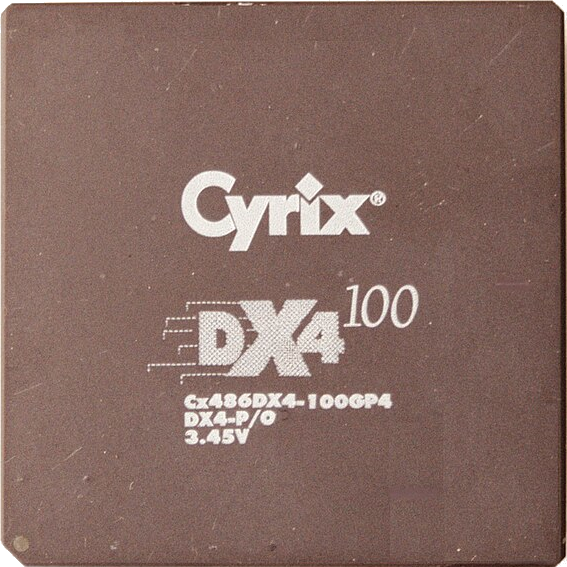Alot of us who have a Raspberry Pi 3 or 4 might upgrade to the Raspberry Pi 5.
Doing so would leave us with 2 Pi’s. What are some great use cases for the older Pi, that would no longer be the main machine?
Here is a controversial thought; do you need to replace the 4?
I can’t speak for the OP, but in my case… It was very much a resounding YES!!! If your using Pis as general home servers, like I was, you can very quickly run into resource constraints. I wound up replacing 5 Pi 4’s with a pair of 4th gen Intel boxes and I’m still hit resource limitations from time to time. Though now it is more io related then ram or cpu.
You didn’t blindly upgrade to the next Pi. Not upgrading or upgrading to something you know meets your demands are the right things to do. I assume upgrading to a Pi 5 is not that for most people
In my case I need the 5 for the extra power. It will exactly meet my demands, and the 4 ‘only’ does 90% of the time.
And if I could find something cool for the 4, I would buy the 5 immediately. But I think I need to know that I can use it for something. Otherwise I will feel bad buying the 5.
On the other hand, they’re relatively cheap and it gives you a spare to tinker with, or at least that’s what I told myself last week when I ordered another Pi3 since I saw they came back in stock on Digikey after all these years.
You probably don’t need pis then you need a real server
Sell them used and reduce the cost of entry to other people
- Octoprint if you have a 3D printer
- Volumio (or similar) if want a device you can cast music to
- for astronomy can install astroberry for remote control of your scope and camera
- run home assistant for home automation
- pihole for use as a DNS server that blocks ads
- plug a camera in and use it as a webcam/ security camera
Thanks man!
I will try Volumio for sure! I also want to try home automation some time, but I don’t think I have enough hardware to run with it yet.
I started my home assistant journey with 4 smart globes, a Google home speaker with a pi 4. I learned how to use it and started integrating things I don’t need hardware for, such as shopping/Todo lists, weather, Spotify, last.fm, calendars, basically anything I can learn without hardware. Right now I’m working on getting a shopping list sent to me when I enter the shops zone.
Then I bought a bunch of NFC tags (they’re cheap) for medication reminders, kitty litter reminders/tracking. I have a music poster in my house I’ve stuck an NFC tag to and it opens up the album on Spotify, turns on Bluetooth and connects to my speaker.
I’ve slowly been adding more devices as I go along due to cost constraints. Not that smart home stuff is expensive, I just can’t afford to do it all at once. Which also gives me time to consider/research smart devices before I buy.
100% recommend. It’s addicting actually.
What is a smart globe?
It’s a light globe for the house that has some sort of connectivity with it. Like wifi, bluetooth, zigbee so that you can control it remotely or automate it.
I’ll add as well, that there are open source and free alternatives to volumio that you can run alongside home assistant on a pi 4 easily, that will still let you use the audio output. As well as the built-in media player functionality.
Also definitely agree on the addicting part. I recently picked up some cheap bulbs at Costco that are susceptible to the Tuya Cloudcutter vulnerability. So now I have a bunch of new ESPhome devices to play with.
Ooh nice. I need to figure out some other type of bulb. The ones I have are TP Link Tapo Wifi and they’re too unreliable.
I got 12 bulbs for AUD$10 each so I was really happy. Definitely check out if there’s any compatible Tuya stuff for cheap locally to you. They’re a Chinese company that makes white label smart home stuff that a lot of department stores and cheaper brands sell.
Oh and you can put Adguard on home assistant too as an add on.
What do you use the Pi for now?
I had a bunch of Pi 3Bs sitting around, so I made piholes for a few friends and family, I made a dedicated MAME emulator that I never have time to play, and I gave one to each of my kids to learn about computers and linux. I also use one for work as a linux test environment for our software, but the 3 hardware doesn’t really keep up.
Right now I use it for:
- PiHole
- Plex/Jellyfin
- WireGuard VPN
- Sonarr/Radarr and all that follows.
I would consider giving it away to family for the same purpose. Thanks for the suggestion!
Since none of these require a Raspberry Pi to run, I would suggest using a mini PC (with an Intel N100 or similar) instead of a Pi 5. With all the accessories needed for the Pi, a mini PC can actually be cheaper and of course a lot more powerful. Since the Pi 5 is very power-inefficient, a mini PC can even be better in that regard too if that matters to you.
Especially for Jellyfin a PC with an Intel CPU with integrated GPU is awesome, since Jellyfin supports hardware transcoding with that.
What do you mean with a rPI 5 being power-inefficient? Did something change in their design?
Compared to other SBCs, Raspberry Pis have been pretty inefficient for a while. A Pi 5 idles at about 3 W, which is pretty terrible for such a board, compared to other similar devices. You can get X86 PCs that idle at 3 W which are way more powerful. Other ARM SBCs use less than half that at idle and similarly less under load.
There are probably multiple reasons for that. The Pi’s SoCs have always used rather old process nodes, which are more power hungry than more modern ones used by other single board computers and PCs - 16 nm for the Pi 5 SoC and 28 nm for the Pi 4. Also, with the Pi 5 there is this additional “south bridge” chip which is attached via PCIe. This consumes additional power and for some reason the PCIe link is configured such that it never enters power saving states. I don’t know why.
Also, the power supply circuitry on the Pi 5 is far from ideal with its 5 V / 5 A power supply. Such a low voltage at such a high current can easily cause additional losses on the wire. That’s mostly relevant under high load though.
Yes, here the question is if you really need to upgrade to 5, and if you really need, why not buy a dedicated NUC for example that would be a lot more powerful and extensible than the 5, while also consuming not too much more power.
Pretty sure I just saw a decent specd one on sale for Black Friday. I almost bought it but realized I have 3 mini PCs already.
IDK what’s happening… Pretty soon my toaster will somehow be run by these things… They just multiply.
I hear rpi5 doesn’t come with hardware decoding, so that is something rpi4 is better at.
Good call if true
Actually need to know this. I haven’t heard about it myself, but maybe I missed it?
Apparently it only has 4k60 HEVC decode and no encoders
Acronyms, initialisms, abbreviations, contractions, and other phrases which expand to something larger, that I’ve seen in this thread:
Fewer Letters More Letters AP WiFi Access Point DNS Domain Name Service/System NUC Next Unit of Computing brand of Intel small computers PCIe Peripheral Component Interconnect Express PiHole Network-wide ad-blocker (DNS sinkhole) Plex Brand of media server package SBC Single-Board Computer VPN Virtual Private Network
8 acronyms in this thread; the most compressed thread commented on today has 8 acronyms.
[Thread #278 for this sub, first seen 12th Nov 2023, 16:40] [FAQ] [Full list] [Contact] [Source code]
I’d add a 2nd Pi-hole (sounds like you have one already?) for redundancy.
I have 2 pi 4. One of them runs Vaultwarden as my self-hosted password manager. The other runs TPLink Omada SDN management software to manage my switch and WiFi APs.







